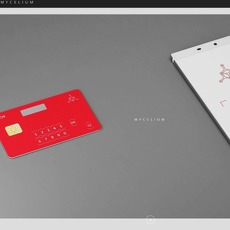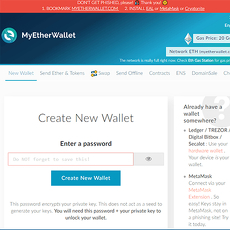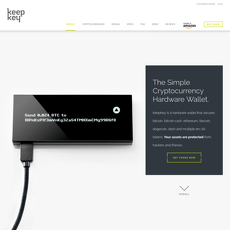Jaxx Multi Currency Wallet Review
Jaxx Multi Currency Wallet
jaxx.io
Everything You Need to Know About Jaxx Multi-Currency Wallet: Ultimate Review Guide with FAQ
Have you ever felt the headache of trying to manage multiple cryptocurrency wallets, each with their own quirks and limited support for the growing sea of coins out there? It’s frustrating, right? You’ve got Bitcoin in one place, Ethereum in another, and that random altcoin you’re betting on scattered who-knows-where. Add constant platform switching and key juggling, and it’s enough to make even the most die-hard crypto fan want to take a break. That’s exactly why tools like Jaxx Multi-Currency Wallet came into the spotlight—it promised to simplify everything. Whether you’re holding a few major cryptos or building a massive, diverse portfolio, the idea of managing all your assets in one sleek and user-friendly space is a game-changer. But here’s the thing: tools like these aren’t just about convenience—they have to work well, stay secure, and adapt to what users need. So, what made Jaxx stand out when it hit the market, and most importantly, does it still live up to the hype? Let’s find out.
Have you ever found yourself lost in the chaotic maze of cryptocurrency wallets? It’s like every week, a new wallet pops up promising to be the "ultimate solution." So, how do you know which one to trust with your precious Bitcoin, Ethereum, or that bag of small-cap altcoins you’re rooting for? It’s not like you can just try them all without risking your funds—right?
Here’s the good news: one wallet that once led the charge in the crypto world was Jaxx Multi-Currency Wallet. Whether you’re brand new to crypto or a seasoned investor, Jaxx was a name that popped up in countless “best wallet” lists back in the day. But what made it so special? Is it still worth considering today? If those questions are bubbling in your mind right now, you’re in the right place.
Why Do Crypto Users Look for Multi-Currency Wallets?
Let’s face it: cryptocurrency has become far more than just Bitcoin. With the rise of altcoins, NFTs, and DeFi tokens, managing your portfolio these days usually means handling 5, 10, or even 50+ different coins. Unless you want to drive yourself insane logging into multiple wallets, juggling private keys, and figuring out which app supports what, the idea of a multi-currency wallet becomes a no-brainer.
A good multi-currency wallet can streamline it all by:
- Housing all your coins in one app: Reduce the chaos of managing individual wallets.
- Avoiding constant back-and-forth: No need to keep switching platforms for transactions.
- Support for an ever-expanding portfolio: As you explore new projects, a single wallet can scale with your investments.
But here’s the kicker: while multi-currency wallets sound amazing in theory, it all comes down to execution. And that’s where many products flopped—but Jaxx gained major traction.
What Made Jaxx Stand Out (Back in the Day)?
When Jaxx released its multi-currency wallet, it was like crypto enthusiasts finally got what they were looking for—a sleek, multi-functional space for their entire collection of coins. At the time, it supported big names like Bitcoin, Litecoin, Ethereum, and Dash, plus a growing list of smaller altcoins that the market was just starting to notice. Imagine how much simpler life became for anyone who owned five to ten different cryptos and just wanted to monitor or transact from one spot.
Another standout? Its design was user-friendly. There was no nerd-only vibe to it, which meant that even beginners could feel comfortable managing their assets without a steep learning curve.
Can You Trust It?
Now, this is where things start to get interesting. Like everything in the crypto space, nothing stays static for long. As people poured into the ecosystem, questions around security, updates, and product longevity became even more important. So, was Jaxx as safe as it promised to be? Or has it fallen behind the times?
We’re going to check out whether its excellent interface was backed by rock-solid features—and more importantly, whether or not it's still relevant in today’s ever-changing crypto world.
My Promise to You
Stick with me, and I’ll clear up every question you’ve got about Jaxx Multi-Currency Wallet. Whether you’re considering using it, or wondering if there’s a better option out there for you, I’ve got your back.
But there’s more to this story than just its early days. What was Jaxx really all about? How did it transform into Jaxx Liberty? And is it still functional in 2025? Don’t go anywhere—you’ll want to check out the next section as we break it all down!
What is Jaxx Multi-Currency Wallet?
If you’ve ever thought, “Why can’t I just manage all my cryptocurrencies in one place?” – well, Jaxx seemed like the hero we needed. Back when it launched, it was one of the go-to names for people juggling Bitcoin, Ethereum, and countless other coins. But to fully understand where Jaxx stands today, let’s first take a closer look at what it really offered.
Quick Overview of Jaxx
Jaxx Multi-Currency Wallet came to life under the leadership of Decentral, a name often associated with innovation in the crypto space. It wasn’t just “another wallet” – it was crafted to solve a real problem. With support for numerous cryptocurrencies like Bitcoin, Litecoin, Ethereum, and Dash, Jaxx quickly became a favorite for crypto enthusiasts.
The simplicity of its interface was its magic. Anyone, from a complete novice to experienced traders, could easily navigate it. Add to that the fact that users had complete control over their private keys, and you’d see why so many people trusted Jaxx with their digital assets.
But what truly set it apart was the ability to manage your funds across devices. Download the app on your phone, access your wallet on your desktop – everything stayed synced. It was as if Jaxx sat with you at every crypto milestone you hit.
Here’s a fun fact about its philosophy: the developer wanted users to feel empowered, with direct ownership and control of their assets. This wasn’t just a product; it was a movement toward decentralization and freedom.
Jaxx vs. Jaxx Liberty
Here’s where things get interesting. Over time, Jaxx evolved into something bigger – Jaxx Liberty. The name upgrade wasn’t just a marketing gimmick. It came with significant changes to enhance the user experience. Liberty integrated more advanced features, including portfolio tracking, news updates, and a seamless way to manage even more cryptocurrencies.
"Technology evolves, and products need to adapt with it to stay relevant."
Some users loved this evolution, calling Liberty a “one-stop solution” for their cryptocurrency needs. Others, however, missed the lightweight simplicity of the original Jaxx wallet. Isn’t it intriguing how people often have divided preferences on technology? It’s like choosing between a slick sports car and an old-school classic – both have their own charm.
Jaxx Liberty brought added functionality, but as we all know, no product can please everyone. Did this rebranding work out in the long run? Well, we’ll get to that part soon enough.
Where Can You Use Jaxx?
One of the wallet’s strongest selling points was its compatibility across platforms. Jaxx didn’t confine you to one device or operating system. It was all about giving you flexibility – something that’s crucial in the fast-moving world of crypto.
- Mobile Devices: Whether you had an Android or an iPhone, Jaxx had you covered with its sleek app. Managing your funds on the go became as easy as scrolling through social media.
- Desktops: For those who liked to take their time on their computers, Jaxx worked like a charm on Windows, macOS, and Linux. A bigger screen, a bigger view of your portfolio – what’s not to love?
- Browser Extensions: At one point, there was even an extension for Chrome users. A quick tap on your browser and, boom, you were managing your portfolio right next to your search tabs.
Jaxx’s usability across devices wasn’t just a convenience – it was part of its identity. No matter where you were or what you were doing, you could check on your crypto holdings with ease. Compare that with the hassle of managing separate wallets for different devices, and you can see why this made Jaxx stand out.
Now, all of this sounds fantastic. But the real question is, did it stand the test of time? Is Jaxx still functional, or is its legacy now just a memory? Stick with me, because we’re about to find out.
Is Jaxx Wallet Still Functional, or Has It Been Discontinued?
It’s 2025. You fire up Jaxx Liberty on your device, only to be greeted by... nothing. Confused? You're not alone. Let’s address the elephant in the room—Jaxx Liberty was officially retired on March 27th, 2023. This wasn’t just a random app update; it was game over for one of the OGs of multi-currency wallets.
The Official Announcement
Back in early 2023, Decentral, the team behind Jaxx Wallet, made the big announcement. They stopped supporting Jaxx Liberty, leaving thousands of loyal users wondering what to do next. The message was clear: users needed to move their funds and find alternatives as continued usage was no longer secure.
This decision might feel sudden, but honestly, the writing was on the wall. Wallet technology has moved at lightning speed, and Jaxx wasn’t quite keeping up with the pack. But hey, no sweat—we’ll see what this means for your funds.
What Happens to Your Crypto Holdings Now?
So, you've been hodling your Bitcoin, Ethereum, or other altcoins in Jaxx Liberty—does its retirement mean your funds are gone? Not at all. Your crypto doesn't disappear because a wallet stops getting updates. The good news is you still own your private keys, and this is exactly how you can recover your funds.
- Export Your Private Keys: Before anything else, make sure you export your private keys from Jaxx Liberty. Not sure how? The app itself gave guidance on this before it retired, but if you're still lost, don't panic. Our next section will lay out a step-by-step recovery guide for your funds.
- Transfer to a New Wallet: You can take those private keys and import them into compatible wallets like Exodus, Trust Wallet, or others that support private key imports. Quick tip: Make sure to pick a wallet trusted by the community for its security and ease of use.
This process might sound intimidating, but it’s a seamless way to regain full access to your crypto so you’re not left stranded. Jaxx might be done, but your journey with crypto wallets has just begun.
Is "Jaxx" Still Relevant in 2025?
Look, I get it—some of you loved Jaxx. It was convenient, held dozens of coins, and had that slick interface that once felt ahead of its time. But let’s be real: crypto evolves fast, and wallets that can’t keep up eventually get left behind. Harsh? Maybe. True? 100%.
Is there any chance of a Jaxx comeback? It’s hard to say. As of now, Decentral hasn’t teased any plans to launch a successor, and the attention has shifted to newer wallets that are better optimized for today’s security standards and functionality needs. Think of it this way—Jaxx played its part in making multi-currency wallets mainstream, but now it’s time for the next generation to take over.
Now, the big question is, how secure was Jaxx during its run? Were there cracks in its armor? Did you unknowingly use a wallet with potential vulnerabilities? I'll break it all down for you in the next section—just wait until you hear some of the stories.
How Secure Was (or Is) Jaxx Wallet?
Let’s be real—when it comes to cryptocurrency wallets, the number one thing on your mind (and mine, too) is security. After all, nothing burns more than losing your hard-earned crypto due to poor safeguards. So, how did Jaxx do on this front? Was it a fortress for your digital assets, or did it leave cracks in the walls that hackers could exploit? Let’s break it down.
Key Features That Protected Your Crypto
First, let’s talk about what Jaxx actually offered in terms of protection measures. Sure, it may not have been the Fort Knox of crypto wallets, but some of its features stood tall:
- Password Protection: You could set a password during wallet setup to prevent unauthorized access.
- PIN Code Security: Another layer of defense was the PIN feature—a quick and easy way to keep nosy eyes out.
- 12-Word Backup Seed: Perhaps the most essential tool in your arsenal. If you ever lost your device or your Jaxx app malfunctioned, this seed could help you recover your crypto funds elsewhere.
These features were useful, but to fully trust any wallet, you also need to ask the deeper questions about private key ownership and whether your funds are truly under your control. Spoiler alert: Jaxx ticked this box, but there’s more to know.
What About Private Key Ownership?
One thing Jaxx always emphasized was that users retained ownership of their private keys. Let me break it down for you: this is huge. Unlike some centralized platforms where your keys—and effectively your funds—are stored on their servers (meaning they control them), Jaxx kept it decentralized. With Jaxx, your private keys were always stored locally on your device.
The good part? This setup minimized the risk of centralized server hacks. Decentralized storage meant your funds weren't at the mercy of a third party. If you’re holding crypto, you know the mantra: “Not your keys, not your coins.” And with Jaxx, that wasn’t an issue.
But let’s keep it real—just because you control the keys doesn’t mean you're completely bulletproof. It shifts the responsibility to you. So, did Jaxx really keep users safe from hacks or slip-ups? Let’s explore its track record.
Were There Any Known Security Issues?
Now here’s where the story gets a little tricky. While Jaxx gave users ownership of their keys, it wasn’t without its security concerns. Over the years, there were multiple reports about vulnerabilities, some of which raised eyebrows in the crypto community. Here are a few highlights worth noting:
- 2017 Security Incident: A cybersecurity researcher revealed that the lack of encryption on Android devices' backup files could make wallets vulnerable if the device fell into the wrong hands. Imagine losing your phone and someone using basic forensic tools to drain your wallet. Scary, right?
- Man-in-the-Middle Attacks: Like other software-based wallets, Jaxx was susceptible to these types of attacks, particularly if users downloaded the app from unofficial sources or connected to unsecured networks.
- User Negligence: While this isn’t entirely Jaxx’s fault, many complaints stemmed from users not securing their backup phrases properly. Remember—it’s a two-way street; the wallet can only do so much.
Not trying to sound paranoid, but these issues weren’t small potatoes. It’s a sharp reminder that no wallet is foolproof. While Jaxx made crypto management easier, it also meant you had to pay close attention to your own security practices.
“In the crypto space, you’re your own bank. And with great power comes great responsibility.”
So where does that leave us? For its time, Jaxx offered features that made it user-friendly and decentralized, which was a big deal. But as crypto gained mainstream attention, the stakes changed. Security flaws that may have seemed minor back then now feel like significant red flags.
Which brings us to the big question: are there wallets out there now that not only do what Jaxx did but go even further in keeping your crypto safe?
Stay tuned, because in the next part, you’ll get a full list of today’s top alternatives and what makes them the new heavyweights in crypto wallet security. You won’t want to miss this!
What Alternatives Are There for Multi-Currency Wallets?
Alright, so Jaxx Liberty is no longer in the picture. If you’re feeling a little lost about where to park your crypto next, don’t worry. After all, no one wants to leave their digital assets hanging. Trust me, I’ve been down this road before—figuring out what makes Wallet A better (or worse) than Wallet B. So, let’s take a close look at some of the best multi-currency wallet alternatives out there today. Ready? Here we go.
The Top Competitors
If you’re ready to move on from Jaxx, there are some serious players dominating the wallet space this year. These are wallets that prioritise security, usability, and versatility:
- Bitget Wallet: Rising in popularity lately, Bitget is a solid bet for both beginners and advanced users. It supports a wide range of assets and integrates seamlessly with DApps, making it ideal if you're into DeFi or NFTs.
- Exodus: Known for its sleek and user-friendly interface, Exodus is a favourite among those who want simplicity without sacrificing functionality. Look out for its built-in exchange feature!
- Coinomi: One of the oldest names in the wallet game, Coinomi still holds its ground thanks to robust security and its ability to support over 1,000 cryptocurrencies. It’s easy to see why users continue to trust it.
Each of these wallets is packed with features, so it really comes down to what matters most to you. Prefer a shiny interface? Go with Exodus. Want all-encompassing support for coins? Coinomi has your back. Or, if you need something DApp-friendly, Bitget could be your jam.
What Features Should You Look For?
Switching wallets is a big deal—it’s not just about convenience but also about securing your precious coins. Here’s a checklist of essential features to help you make the switch with confidence:
- Security: Does the wallet offer private key ownership? Does it use two-factor authentication (2FA) or hardware wallet compatibility? Don’t settle for anything less than airtight security for your crypto.
- Ease of Use: A clunky interface can be a nightmare. Look for a wallet with clean navigation and an intuitive design, especially if you’re not super tech-savvy.
- Multi-Asset Support: If you hold a diverse portfolio, ensure the wallet supports all your favourite coins. Nobody wants to shuffle between multiple apps.
- Connectivity: Are you interested in integrations with DApps, DeFi protocols, or gaming platforms like Axie Infinity? Some wallets are better suited for these than others.
- Backup and Recovery Options: Ensure the wallet provides a seamless way to back up your funds through seed phrases or other methods.
Remember, you’re not just choosing a wallet; you’re choosing the future home for your hard-earned cryptocurrencies. Quoting the famous Warren Buffet, “Risk comes from not knowing what you’re doing.” Picking the right wallet ensures you’re prepared for all eventualities.
Comparison Table: Jaxx vs Competitors
To make this even simpler, let me show you a quick side-by-side comparison of Jaxx and its competitors:
| Wallet | Security | Supported Cryptos | Ease of Use |
|---|---|---|---|
| Jaxx Liberty | 12-word backup, Private Key Ownership | 85+ | Moderate |
| Bitget Wallet | 2FA, Private Key Storage | 100+ | High |
| Exodus | Password protected, Local Encryption | 245+ | Very High |
| Coinomi | Seed Backup, Private Key Control | 1,000+ | High |
Of course, no wallet is perfect. But seeing them all laid out can help you figure out what fits your crypto needs the best. For example, if simplicity and integration are high on your list, Exodus would immediately grab your attention. On the other hand, if you’re a security-first kind of person, Bitget might check all your boxes.
Now you’re probably wondering—how do these wallets compare when it comes to specific user categories? Like, is one better for beginners, and another for advanced users?
Who Was Jaxx Wallet Best Suited For (And Who Should Avoid)?
Newbies vs. Experienced Users
Here’s the deal: Jaxx felt like a wallet that lived in two worlds. On one hand, beginners appreciated its simplicity. No, it wasn’t overly technical—you didn’t need to be a blockchain engineer to send or receive crypto. The interface was clean, and setting it up (back when it was in its prime) just worked. That’s huge for someone who’s taking their first steps into crypto, where everything can feel like rocket science.
But—and there’s always a "but"—it didn’t stop there. Experienced users loved its flexibility, especially back in the earlier days of crypto when finding a multi-currency wallet wasn’t so easy. The fact that you could store Bitcoin, Ethereum, and a long list of altcoins in one place really mattered when managing multiple assets was, let’s face it, a total headache. It simplified their process, which is something even seasoned investors crave.
So, where’s the catch? Well, advanced users often found themselves bumping against Jaxx’s limitations when it came to ultra-advanced features. If you’re the kind of person looking for hardcore tools like hardware wallet integration or detailed transaction management, Jaxx probably wasn’t cutting-edge enough for you.
"Ease of use is important—but not at the cost of security or customization," a Jaxx user once commented in a crypto forum, and honestly, that sums it up.
Key Pros and Cons
Like everything in the crypto space, Jaxx had its share of fans and critics. Let’s break that down:
- Pro: Easy setup—anyone could get started with Jaxx in just a few minutes. No lengthy verification process, no frustrating obstacles. It made crypto feel accessible.
- Con: Limited advanced features—if you were trading at a high level, Jaxx could feel a bit "basic" compared to some competitors.
- Pro: Multi-currency support—it wasn’t just Bitcoin and Ethereum. Jaxx supported a wide variety of cryptos, which was a game-changer when juggling multiple assets wasn’t easy back then.
- Con: Security concerns—you held your private keys, which is great. But the wallet had its critics about how truly impenetrable its defenses were. Some users were always on edge.
- Pro: User-friendly interface—no fumbling around. It was designed to make crypto easy and fun to explore.
- Con: Disconnected user base—over time, after it was replaced by Jaxx Liberty, the community lost connection because not everyone transitioned smoothly.
Honestly, this wallet took bold steps in a space that’s usually pretty intimidating. But no product is perfect, and Jaxx was no exception. Some users adored it for its simplicity and variety, while others expected something more robust. Where do you fit in? That depends on your goals—and whether you want simplicity or complexity in your crypto tools.
The lingering question might still be: What if you used Jaxx and need help sorting your funds out now that it’s retired? The next part has everything you need—from securing your private keys to implementing the safest steps if you want to switch to a new wallet. Ready for answers? Let’s check that out.
Step-by-Step Guide to Recovering Your Funds After Jaxx’s Retirement
So, the dreaded day came—Jaxx Liberty was officially retired on March 27, 2023. If you were caught off guard or left wondering what to do next, you’re not alone. But hey, breathe easy. Your crypto isn’t lost. There’s a way forward, and I’m going to break it down for you step-by-step. Hang tight, because we're about to make sense of all this.
Exporting Your Private Keys
First things first—let’s talk about private keys. They are quite literally your crypto’s lifeline. When Jaxx shut its doors, accessing your private keys became non-negotiable for moving your funds. Here’s how you can get this done:
- Open Jaxx Wallet (If It’s Still Installed): Launch your Jaxx app. If you’ve uninstalled it, you’ll need to reinstall it temporarily from available sources (beware of phishing clones—always verify the app).
- Navigate to the "Tools" Section: In most versions, this is where the option to export private keys is hidden.
- Select Your Desired Crypto: Private keys are specific to every wallet address and cryptocurrency. You’ll need to export the key for each asset individually.
- Copy and Store Securely: Once you see the private key, copy it somewhere safe (and offline). Think encrypted USB drives or even hand-written records, but avoid cloud storage for security reasons.
Pro tip: If this process feels too technical, platforms like ReWallet provide beginner-friendly instructions tailored for Jaxx users.
“If you don’t hold your private keys, you don’t hold your crypto,” as the saying goes. Hold onto these keys like they’re gold.
Importing Keys to a New Wallet
Alright, you’ve got your private keys—what next? Now, it’s time to move your funds to a more modern, secure wallet. Luckily, many wallets support private key imports, making this step much easier than it sounds.
Here are some wallets that work seamlessly with Jaxx-exported private keys:
- Exodus Wallet: Known for its beginner-friendly interface, you can import your private keys in just a few clicks.
- Bitget Wallet: Perfect for multi-currency management, this wallet boasts robust security features.
- Coinomi: Another multi-currency wallet that’s trusted by many in the crypto community.
The steps are broadly similar across wallets:
- Open your new wallet and go to the import function.
- Paste the exported private key into the designated field.
- Let the wallet sync up—your funds should reflect shortly.
And just like that, you’re back in business!
Resources to Help You
Navigating wallet transitions on your own can feel intimidating, so don’t hesitate to tap into resources that hold your hand through the process. A few communities and tools that might help:
- Reddit’s Crypto Community: Tons of Jaxx users have shared their personal migration steps here.
- My Reviews on Crypto Wallets: Read up on detailed wallet reviews to find the perfect replacement for your needs.
Remember, when in doubt, ask. Most crypto enthusiasts are more than happy to help out a fellow hodler.
“I keep six honest serving men (they taught me all I knew); Their names are What and Why and When and How and Where and Who.” – Rudyard Kipling
So, ask yourself this: If Jaxx isn’t in the picture anymore, where should your crypto journey go now?
Speaking of questions, are you still wondering if it’s safe to trust wallets like Jaxx—or if its demise left an opening for something better to step in? Stick around—there’s more to uncover, and we’re just getting warmed up!
FAQs About Jaxx Wallet
Is Jaxx Wallet Still Safe to Use?
If you’re wondering whether using Jaxx Wallet is still a good idea, here’s the short answer—it depends on what you’re comfortable with and your specific crypto needs. While the original Jaxx Wallet and its successor, Jaxx Liberty, have officially been retired by Decentral, you may still have access to the app if it’s installed on your device. That said, the lack of active updates or support means relying on it might not be a great idea for security-conscious users.
Security risks in the crypto world are no joke. Without regular updates, wallets like Jaxx are vulnerable to potential exploits or hacking threats. For instance, one of the key selling points of Jaxx back in the day—its handling of private keys—was a double-edged sword. While the wallet allowed users to maintain control by storing private keys locally, the absence of encryption for the keys on some devices raised concerns after a 2017 security flaw report. That issue highlighted the risks of carrying significant funds in any wallet that isn’t actively monitored or maintained.
Also, keep in mind that since there’s no official support now, if anything goes sideways, you’re entirely on your own. Feel free to check out more recent wallets that have stepped in to fill the gap for safer options.
What Made Jaxx Unique?
Back when Jaxx first entered the crypto scene, it truly felt like it was ahead of its time. One app, multiple cryptocurrencies—it simplified life for users trying to manage Bitcoin, Ethereum, Litecoin, Dash, and even some lesser-known coins. Unlike other wallets that forced people to juggle different tools for different coins, Jaxx became loved for its convenience.
Another standout feature was its cross-platform availability. Jaxx wasn’t just limited to your mobile device—it supported desktop platforms as well. This flexibility allowed users to access their funds on the go or from the comfort of their PCs, syncing them seamlessly (at least most of the time). It was this “all-in-one” feel that earned it a loyal fanbase in its golden years.
Oh, and who could forget its slick interface? While many of its competitors had clunky, overly technical UIs back then, Jaxx’s design made crypto approachable, which was a big win for newbies and those just dipping their toes into the crypto world.
Does Jaxx Have a Successor?
So, here’s the million-dollar question—what’s next from Decentral? At the moment, it doesn’t seem like they’ve announced a direct successor to Jaxx Liberty, but the crypto space is full of surprises. Could they bounce back with a new, groundbreaking wallet? Honestly, it’s hard to say.
Decentral did play a significant role in shaping how multi-currency wallets work today, so even without Jaxx, their legacy lives on. It wouldn’t be surprising if some of their tech ideas influenced other wallets currently on the market. For now, though, it seems Jaxx—and its Liberty iteration—are a chapter closed in the crypto journey.
Still curious if alternative wallets influenced by Jaxx’s spirit could offer a better solution? Or maybe wondering which wallet matches the same multi-currency capabilities Jaxx was known for? Keep reading, because I’m about to explore just that in the next section. What’s the best move for your crypto funds now that Jaxx is out? Let’s take a closer look at your options next.
Final Thoughts: The Ultimate Jaxx Wallet Review Guide
Should You Move On?
Let’s face it—Jaxx had its time in the spotlight, but the crypto world doesn’t wait around for anyone. With its retirement, it’s clear that Jaxx isn’t the wallet you should rely on anymore. If you’re still hanging onto it for one reason or another, ask yourself if it truly meets your current needs. Is it secure? Is it convenient? Most importantly, does it even make sense to use a wallet that officially ceased support earlier this year?
The reality is, sticking with Jaxx now is like holding onto an old flip phone when smartphones exist. Sure, it worked in the past, but crypto users today need more dynamic solutions to grow, trade, and protect their assets. Don't hold onto nostalgia when you're dealing with your hard-earned funds. Moving on to wallets built for 2025 and beyond is the smarter—and safer—move.
Best Alternatives Right Now
If you’ve decided to leave Jaxx behind, there are plenty of options to pick from. Let me highlight three that are currently leading the pack:
- Bitget Wallet: An excellent choice for those looking for top-tier security paired with simplicity. With multi-chain support, a user-friendly interface, and strong encryption protocols, it’s recommended for beginners and seasoned pros alike. The fact that it focuses on integrating DeFi solutions is a big plus for anyone exploring decentralized applications.
- Exodus: This is a classic wallet that continues to evolve. With its slick design and desktop/mobile compatibility, it’s a solid option. It also features an integrated exchange—perfect if you don’t like switching between apps to trade your assets. And let’s not forget, Exodus has a loyal user base thanks to its reliability over the years.
- Coinomi: Known for its versatility, Coinomi supports a massive list of cryptocurrencies. It prioritizes privacy, ensuring that your data is not tracked when you use the app. Additionally, it allows you to access decentralized exchanges directly from the platform, making it highly convenient.
If none of these stand out to you, consider researching niche wallets that cater to your specific needs. For example, if you primarily use Ethereum-based tokens, wallets like MetaMask might be ideal. Alternatively, those diving deep into Bitcoin might explore something like Electrum for its laser-focus on BTC security.
Conclusion
To wrap things up, Jaxx had its glory days, and it won’t be forgotten by those of us who used it. But the time has come to move forward. With new wallets offering better security, better usability, and far more innovative features, there’s no better time to make the switch.
Remember, the ultimate goal of a crypto wallet is to keep your funds safe while making transactions and management smooth and seamless. The current market has so many great options that there’s no excuse for settling. Whether it’s Bitget, Exodus, or another wallet, you’ll find something that fits your needs perfectly.
If you’ve already made the move or are thinking about switching, let me know—you can drop a comment or reach out through my blog. I’d love to hear what worked for you and help guide others looking for the best solutions in the crypto ecosystem. Here’s to securing your assets and staying ahead in this fast-paced crypto world!













